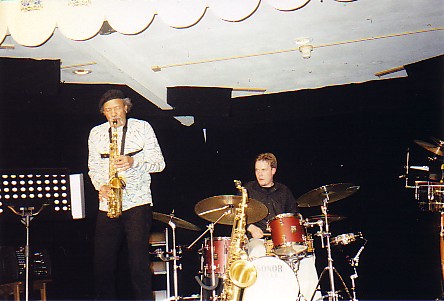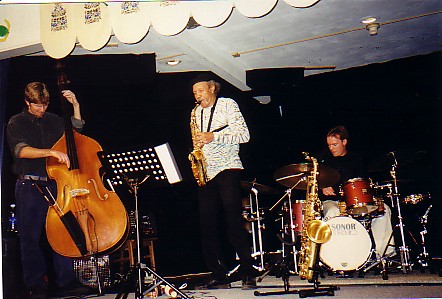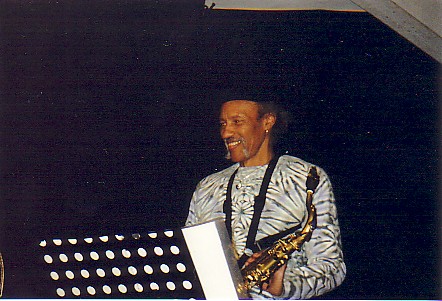|
Written by: Silver Jade
Sometimes I feel so secluded being up here in the mountains of western Massachusetts that I find it hard to envision a life so unlike my own. On Wednesday December 4th, the students at Berkshire Country Day Secondary School were fortunate enough to gain exposure to a distant era in a far off place. The Famous saxophonist, Charles Neville took the stage that night both to lead a down-to-earth discussion of his past life and to deliver a whirlwind of "real" jazz music for the students. He opened up a gateway into better understanding the feeling behind the works of W.E.B Dubois, of whom BCD is leading a yearlong celebration for. It became quite clear to the students very early in Charles's discussion that BCD is an extremely long way from the real Deep South.
When Charles was in 8th grade, he had been inspired to learn to play the saxophone. His aunt had agreed to buy him one, as long as he received all "A"s in his classes. As Valedictorian of his class, it wasn't long before he was running his hands over a brand new saxophone. However, his talent was restricted by his lack of desire to practice the basics. Nevertheless, with a little help from a fellow musician who told him "just to practice the scales," he soon found himself able to play tunes he has never thought he would be able to. For Charles, his inspiration came from a number of places. His parents who were also very musical led the way, by providing support and putting all their faith into the success of their children. Then there was the sheer amazement of seeing a man much like himself who came out of his same background, finally "making it." Music was the one shot Charles had at making his life a success because he sternly refused to accept the things that were expected from him.
"I'm not gonna accept what my friends accept. I'm not gonna do what my friends are gonna do" -Charles Neville
Even though Charles now has been able to put his anger and dealings with drugs and racism behind him, he has to accept that his own son chose an alternate path. His son has served only nine years of his twenty-two year prison sentence. He had been a hustler who ran with a group of pickpockets. As Charles acknowledges, "he bought into the identity that he thought he was given." His son is now a master baker in his prison and finds himself repeatedly pondering: if only I had tried to be learn when I was on the outside, if only I had tried to make something of myself. Charles's son may not have been able to overcome society's expectations, but at least his father was able to.
After Charles concluded his talk with the students, he, along with for other area musicians (of whom one is a teacher at BCD and another is an Alumni) enchanted everyone with over an hour and a half of real jazz music.
Even though the band was completely "winging it," they never lost a beat. I sat practically dancing in my chair. With every song that was played, I found myself being lifted further and further from my own body, allowing myself to experience the music in a way that I never even imagined possible. Every note of the saxophone practically floated on air out to the farthest reaches of my mind. The crisp penetrating notes swirled around in my head bringing back my own past memories, which had been nearly forgotten.
During one of the songs, I could recognize a faint similarity between Charles's lead tune and that of one found on the "Moulin Rouge" soundtrack. I was later informed that the tune, which I was familiar with, was in actuality a remake. Does Jazz music stem from a world that I know little about? Are both Charles and his soulful music a little outside my time? Perhaps, I'll admit that much. But, that still doesn't mean that I can't feel connected to the rhythm in some way- in my own way.
And, thanks to Charles Neville's frank and open discussion of his own painful and unbelievable past, I now feel a little connected to Charles himself. The Deep South is a land in which I'll never fully understand, but with every word, and every experience shared, I know that I can better comprehend it. Jazz music is all about the rhythm: the rhythm of the past, the rhythm of the present, and the rhythm of whatever is to come. However, only I can choose how I will experience it.




|


